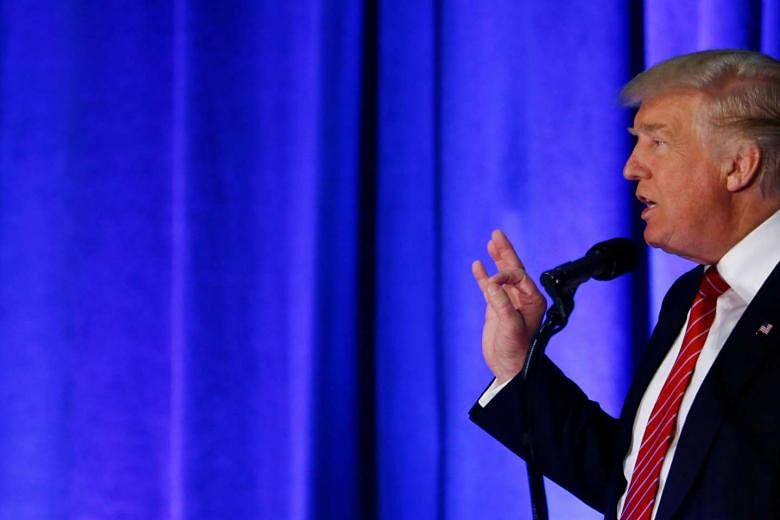Two issues stand out for Indonesia, Malaysia and Thailand as they scrutinise the policy leanings of the candidates vying to be the next US president - Mrs Hillary Clinton's resistance to the Trans-Pacific Partnership (TPP) and Mr Donald Trump's fiery anti-Islamic stance.
There are more than 220 million Muslims living in Indonesia and Malaysia. It therefore comes as no surprise that very few in these nations are rooting for Mr Trump, given his anti-Muslim rhetoric, including a call last year for a ban on Muslims entering the United States.
Although he later backpedalled on that issue, he subsequently made calls for "extreme vetting" of Muslims and has claimed that Muslims in New Jersey had cheered the 9/11 terrorist attacks.
The Straits Times polled 100 people in Jakarta last month, and of the 70 who follow the US polls, only three said that they would prefer to see the Republican real estate mogul become president.
Most Indonesians have found Mr Trump's remarks a huge turn-off and some were concerned that his Islamaphobia may manifest in his foreign policy.
Professor Didik Rachbini, from the Mercu Buana University in Jakarta, said: "It is hard to believe that a figure like Donald Trump still exists in a democratic country like the US. We hope Hillary wins because Indonesia-US relations have lasted for more than a half century, and that should not be put in jeopardy."
The other bugbearfor South-east Asia, where trade is key to the economy, in the post-Obama years is the TPP. The ambitious trade pact - which covers the US and 11 other countries in the Asia-Pacific region but excludes China - is pending approval before the US Congress. Both Mrs Clinton and Mr Trump have opposed the deal.
With no certainty that Washington will continue its Asia pivot, of which the TPP is a key element, Kuala Lumpur has recently leaned heavily towards increasing business ties with Beijing, signing off on deals worth tens of billions of dollars. To analysts, this signals that whoever next leads the US needs to make serious overtures if it wants Malaysia to ease away from China's embrace.
"Even though the candidates offer different promises, they both wouldn't want to allow China to be dominant, due to concerns over Beijing's intrusion into other areas, like the South China Sea," said Mr Wan Saiful Wan Jan, head of policy think-tank Ideas.
The effect of the US elections appears more muted farther north in Thailand, a country just weeks into its year of mourning after the death of King Bhumibol Adulyadej.
Thai academics such as Dr Thitinan Pongsudhirak from Chulalongkorn University in Bangkok said that either a Clinton or Trump victory at the US polls is not going to have a positive impact on Thailand.
He expects the US to maintain a critical view of the Thai military government, although Mrs Clinton "may be more nuanced, and try to re-engage with Thailand without abandoning human rights and basic freedom issues".
But if Mr Trump wins, US ties with Thailand will go into "unknown territory", particularly in terms of trade. Thailand, which is not a member of the TPP, has expressed interest in joining it.
"The broad Trump platform is one of isolationism and looking inward, and on trade forums, it would not be conducive for free trade agreements and the TPP," said Dr Thitinan. Mrs Clinton, who has also denounced the TPP during her campaign, had supported it during her tenure as secretary of state.
"Whoever wins, it's not going to be significantly beneficial for Thailand."
•With additional reporting by Shannon Teoh, Malaysia Bureau Chief, in Kuala Lumpur and Tan Hui Yee, Thailand Correspondent, in Bangkok

